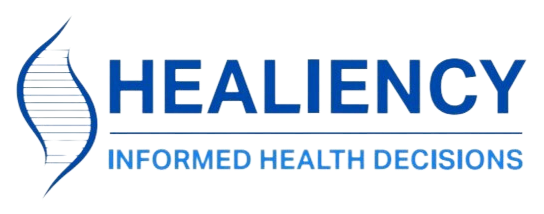Alan was barely six years old when he started showing signs of B-12 deficiency. His obsessive compulsive behavior became more noticeable. He also was withdrawn from his friends and had difficulty expressing himself at times. It wasn’t until Alan’s mother took him to the Doctor and insisted on a series of tests that the situation became clearer. Today, Alan is thriving and living life to the fullest after balancing his nutrients.
As parents, we want our children to grow up healthy, happy, and successful. However, what happens when a child’s development takes an unexpected turn? Alan’s story is a prime example of the importance of proper nutrition and how a deficiency in a specific vitamin can impact a child’s cognitive development. In this article, we will explore the role of B-12 vitamin in children’s cognitive development and how parents can ensure their children get the proper nutrition they need to thrive.
Children require a balanced and nutrient-rich diet to support their physical and cognitive growth. While many of us are aware of the importance of vitamins for our own health, we may not realize how critical they are for children, especially when it comes to brain development. B-vitamins, in particular, play a crucial role in children’s mental health and cognitive function. Deficiencies in these vitamins can lead to a range of symptoms, including moodiness, poor academic performance, and even behavioral issues that can mimic autism spectrum disorders. With B-vitamins being found in more varied sources and supplementation being a useful option, it’s essential for parents to pay attention to their child’s nutrient intake.
B-Vitamins and cognitive development:
The role of nutrition in supporting optimal health is increasingly recognized in medical practice, with several clinical publications highlighting its impact on cognitive and intellectual functions. Among the essential nutrients, B vitamins play a crucial role in cognitive development.
- Thiamine (B1) is necessary for the formation of Thiamine Pyrophosphate (TPP), and deficiency can cause neurological deficits, pain, irritability, and anorexia, progressing to heart damage. Children with autism spectrum disorder (ASD) also have unstable thiamine levels that can be corrected with supplementation.
- Riboflavin (B2) is vital for carbohydrate digestion and metabolism, and deficiency can cause painful cracking of the corners of the mouth and a purplish tongue.
- Niacin (B3) is essential for cell metabolism and coenzyme formation, and deficiency can lead to Pellagra, causing dermatitis, diarrhea, dementia, and death.
- Biotin and Pantothenic acid are crucial for carbohydrate and lipid metabolism, without which children cannot process food.
- Pyridoxine (B6) plays a vital role in metabolism, protein synthesis, and neurotransmitter synthesis. Deficiency can cause anemia, seizures, and impair brain function.
- Folate (B9) is needed for red blood cell maturation and fetal nervous system development. Deficiency can cause anemia, neural tube defects, and depression-like symptoms.
- Cyanocobalamin (B12) is essential for myelin synthesis, DNA repair, and nerve protection. Deficiency can lead to fatigue, anemia, and neurological problems. Vegans and meat-eaters alike may struggle to obtain enough B12, with deficiency linked to cognitive modifications in teenagers.

Ensuring Adequate B-Vitamin Intake in Kids?
It’s important for children to get enough B vitamins in their diet to prevent any nutritional deficiencies. B vitamins can be found in foods of animal origin such as meat, eggs, and dairy products, including organ meats like liver, kidney, and seafood. Additionally, folate and thiamine are found in cereal and legumes, as well as fortified cereals, and in green leafy vegetables like spinach and kale.
Incorporating these foods into a child’s diet in appropriate amounts can help ensure they get enough B vitamins. If you suspect a deficiency or want to take preventative measures, over-the-counter children’s vitamins are available at most natural health food stores, supermarkets, and pharmacies. However, supplement advice cannot be applied universally to all children. It’s best to consult with a doctor or qualified healthcare professional to determine the best option for your child.
B12 Vitamin for Vegans: What You Need To Know
For people who are vegetarian or vegan, it’s especially important to be aware of the potential for B vitamin deficiencies as they do not consume the main sources of B vitamins found in animal products. Vegan pregnant women may put their children at higher risk of developmental defects due to their chosen diet. Even after the babies are born, their liver stores of B vitamins are much lower than normal babies, and the onset of symptoms and developmental delays are more common.
Vegetarian families can compensate for this deficit by eating animal-sourced products like honey and eggs, but vegans may face a loss as there are no reliable plant sources of B vitamins. Fortified foods typically contain a low dose of B12, and seaweed products marketed as B12 alternatives are not a good source. The safest route is to take B-vitamin supplements, especially multivitamins that include some micro-minerals as well. In addition, fortified grains and cereals can be used instead of regular grain products. B-vitamin supplements should not pose an issue for vegans as the vitamins are grown in culture media, and even the tablets sold by most companies are gelatin-free.
Vegetarian families can compensate for this deficit by eating animal-sourced products like honey and eggs, but vegans may face a loss as there are no reliable plant sources of B vitamins. Fortified foods typically contain a low dose of B12, and seaweed products marketed as B12 alternatives are not a good source. The safest route is to take B-vitamin supplements, especially multivitamins that include some micro-minerals as well. In addition, fortified grains and cereals can be used instead of regular grain products. B-vitamin supplements should not pose an issue for vegans as the vitamins are grown in culture media, and even the tablets sold by most companies are gelatin-free.
Conclusion:
In conclusion, B-vitamins play a crucial role in children’s cognitive development, impacting everything from memory and attention to language and executive function. While many foods contain B-vitamins, animal-based sources are particularly rich, which can be a concern for vegetarian and vegan families. Supplementing with B-vitamins may be necessary in these cases, as well as for children who have a poor diet or a suspected deficiency. However, it’s important to work with a healthcare professional to determine the best approach, as supplements can vary in quality and dosage. Ultimately, the key to ensuring children get the nutrients they need is to focus on a balanced, nutrient-dense diet, with plenty of fruits, vegetables, whole grains, and healthy sources of protein. By prioritizing good nutrition, parents and caregivers can help set children up for success, both in school and in life.
References:
· Obrenovich ME, Shola D, Schroedel K, Agrahari A, Lonsdale D. The role of trace elements, thiamin (e) and transketolase in autism and autistic spectrum disorder. Front Biosci (Elite Ed). 2015 Jan 1;7:263-77.
· The Merck Manuals: The Merck Manual for Healthcare Professionals. http://www.merck.com/mmpe/print/sec16/ch215/ch215b.html. Accessed April. 11, 2014.
· Shils M.E., Olsen J.A., Shike M., Ross A.C. Modern Nutrition in Health and Disease, Lippincott Williams & Wilkins; Eleventh edition (December 18, 2012).
· Bourre JM. Effect of nutrients (in food) on the structure and function of the nervous system: Update on dietary requirements for brain, Part 1: Micronutrients. J Nutr Health Aging. 2006;10:377–85.
· Hvas AM, Juul S, Lauritzen L, Nexø E, Ellegaard J. No effect of vitamin B-12 treatment on cognitive function and depression: a randomized placebo controlled study. J Affect Disord. 2004;81:269–73.
· Institute of Medicine (US) Standing Committee on the Scientific Evaluation of Dietary Reference Intakes and its Panel on Folate, Other B Vitamins, and Choline, Dietary Reference Intakes for Thiamin, Riboflavin, Niacin, Vitamin B6, Folate, Vitamin B12, Pantothenic Acid, Biotin, and Choline (1998).
· Alpert JE, Fava M. Nutrition and depression: The role of folate. Nutr Rev. 1997;55:145–9.










